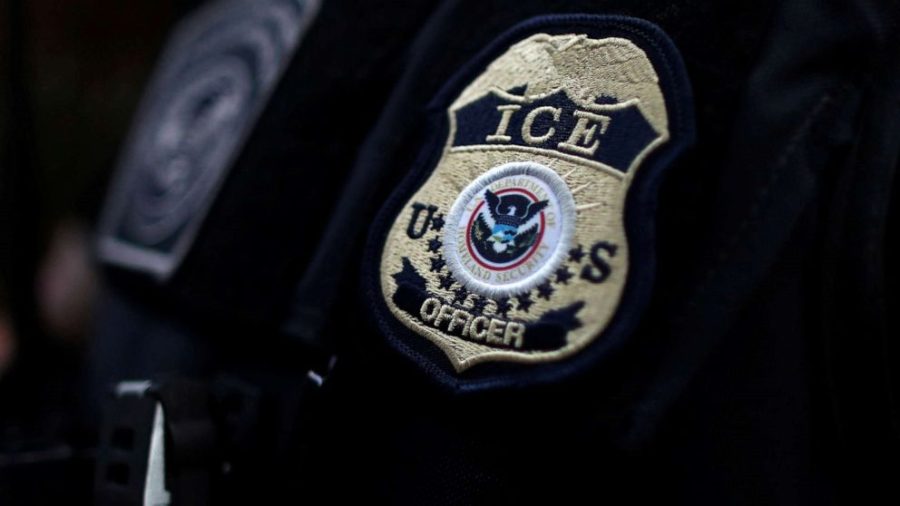New Immigration Guidelines Represent the U.S. Government’s Failure to Help Immigrants
The United States has a complicated history with immigration. The U.S. was built through the hard work of immigrants, and the roots of this country came from those who immigrated here during the 19th century. However, the current immigration system in the United States is completely broken, with no sufficient evidence of progressive legislation from either political party.
Although the United States’ main political parties claim to have varying approaches to immigration, it seems that no matter the party in office, immigration policies remain just as vague and ineffective as ever. Government leaders must recall American ideals and reform immigration policies to reflect the necessity and importance of immigration in our country’s formation.
At the end of September, The Department of Homeland Security released new immigration enforcement guidelines. These instructions include “mitigating factors” that highlight certain instances where arresting and removing someone might be deferred. The few examples stated within these factors include elderly people, young people, victims of crime and those who have been in the U.S. for a “lengthy” amount of time.
These guidelines are extremely broad, despite the fact that they are meant to clarify the role of Immigration and Customs Enforcement agents and Customs and Border Protection agents. Continuing with this legislative lack of transparency, the Biden Administration announced on Oct. 15 that they would restart the “Remain in Mexico Policy” in November of this year.
This Trump-era policy forced at least 70,000 asylum seekers to remain in Mexico, even if they were facing dangerous conditions. Instead of staying in the U.S. while waiting to hear from the U.S. courts, these asylum seekers were forced to stay in Mexico.
Former President Donald Trump introduced this policy in Jan. 2019. The program was justifiably criticized due to its lack of concern for the dangerous conditions asylum seekers were trying to escape. By invalidating the dangerous conditions asylum seekers were trapped in, many were unjustly abandoned in crisis.
The Human Rights Watch says that the physical harm and illnesses some migrants in Mexico have been facing since 2019 are a result of the Trump Administration’s policies. The group interviewed people for their report, including children who reported “rape or attempted rape and other sexual assault, abduction for ransom, extortion, armed robbery and other crimes committed against them.”
Forcing migrants to stay in the threatening conditions they are trying to flee is inhumane. Many people in the United States assumed that a change of political party within the presidency would signal a positive step for immigration rights. However, the two parties have more similarities than differences when it comes to handling immigration.
Donald Trump was notorious for his strict immigration policies, such as his construction of a border wall, increased detention facilities and restricted access to asylum seekers. Trump promoted the idea that immigrants were “dangerous” and often used derogatory and damaging language to describe people hoping to move to the United States. The horror stories of families being separated at the border and in the U.S. also spread, leading to substantial criticism of Trump’s immigration policies.
Former President Barack Obama also enforced strict immigration policies, despite being a Democrat. His handling of immigration was very complicated; Obama deported more illegal immigrants than any previous administration, but also helped protect 750,000 unauthorized immigrants brought to the U.S. as children from deportation.
While Obama helped many people, specifically children, who were taken to the United States by their guardians, his deportation of so many immigrants was extremely aggressive. The comparison of these policies proves that whatever each party might proclaim as its stance on immigration, both parties’ actions are much more similar than different.
All of these policies from Biden, Trump and Obama highlight the confusion and chaos surrounding the immigration debate. Regardless of party, the United States government creates very broad legislation when attacking this issue. As a result, it leads to unjust mass deportation, fears of deportation from immigrants, public outcry, protests and asylum seekers never having their promise of freedom fulfilled.
The uncertainty surrounding immigrant rights and protections leads hopeful immigrants to constantly live in fear. At any moment the government can entirely change its policies, resulting in a volatile stance on immigration.
With the unfolding crisis in Haiti and a potential influx of Haitian immigrants, even more chaos is unfolding in the U.S. Images of Border Patrol agents viciously attacking Haitian migrants near a Texas encampment have been spreading on social media.
America has promoted itself as the “land of opportunity” or the “land of the free” since its founding. United States immigrants have worked diligently to survive and prosper here. With the combination of these American ideals and the cases of hardworking immigrants in the United States, we must question our government’s policies. Why are policies focused on keeping migrants out still being enforced when these people are seeking out the safety the United States has historically promised them?
Regardless of political affiliation, the United States has an extremely discombobulated approach to tackling immigration. This is currently being proven as Biden is turning back to Trump-era policies. Both parties are failing immigrants who are in search of a better life.
Everyone deserves the opportunity that America proudly promotes. Shoshana Hershkowitz of the L.I. Social Justice Action Network said it best at a recent rally: “We are a nation of immigrants and we will no longer allow 11 million undocumented immigrants to worry about their next meal, to worry about their next day, and stay in the shadows. You belong here. This is your home.”
Ally Dugan, FCRH ’2023, is a communications and culture major from West Chester, P.A.










































































































































































































